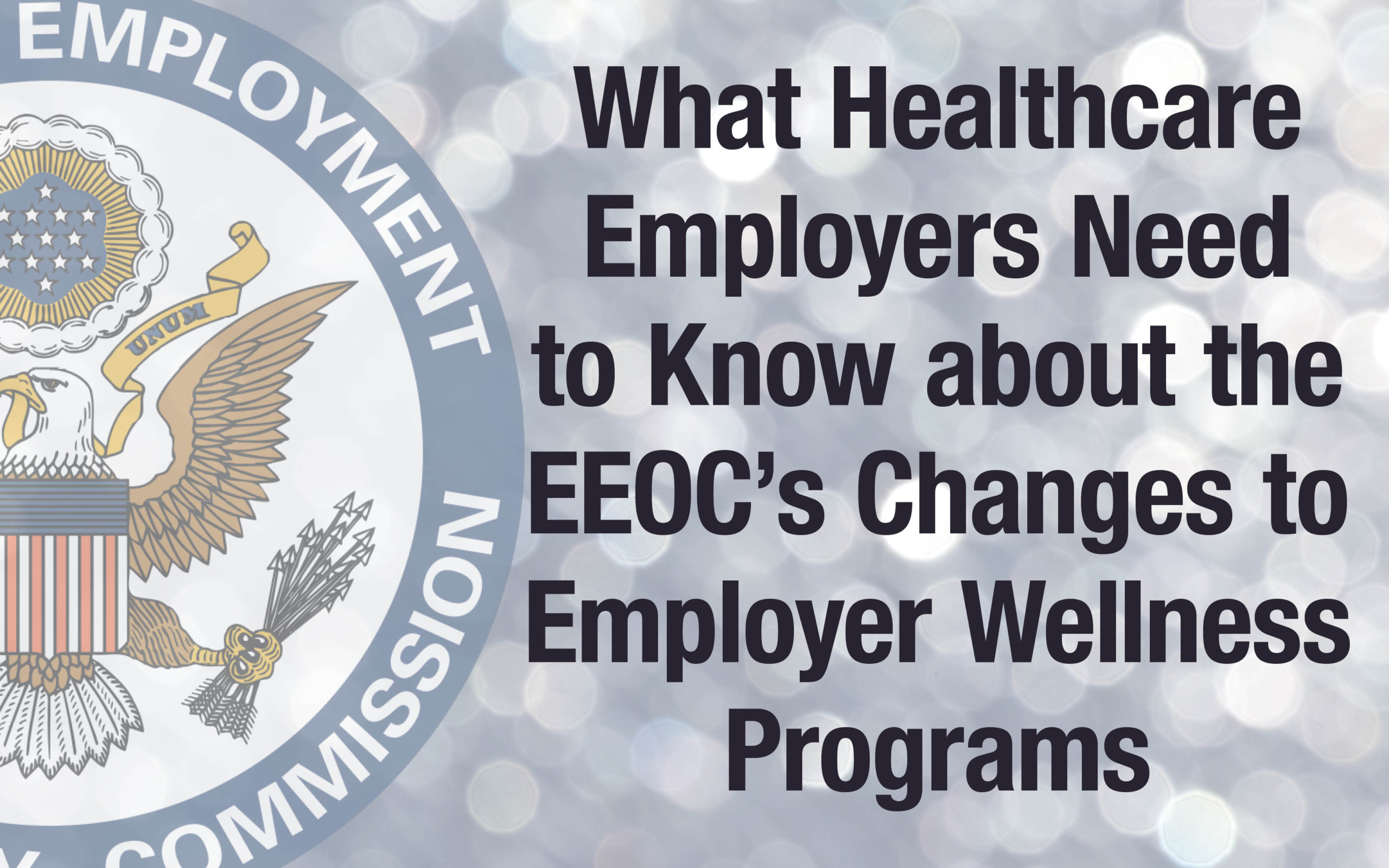What Healthcare Employers Need to Know about the EEOC’s Changes to Employer Wellness Programs
On May 17, 2016, the Equal Employment Opportunity Commission (EEOC) issued final rules that describe how the Americans with Disabilities Act (ADA) and the Genetic Information Nondiscrimination Act (GINA) apply to employer wellness programs that request health information from employees. The ADA and GINA provide important safeguards for health information in order to protect employees against discrimination. Therefore, the EEOC wants to ensure that wellness programs are not used to collect or sell sensitive medical information about employees and family members or to impermissibly shift health insurance costs to them. To this end, the final rules require wellness programs to be reasonably designed to promote health and prevent disease.
What is a Workplace Wellness Program?
Many employers encourage employees to live healthy lifestyles in preventing disease by providing incentives through a workplace wellness program. These programs generally require employees to provide personal and health information by answering questions on a health risk assessment (HRA) and/or undergoing biometric screenings for risk factors (such as high blood pressure or cholesterol). According to the EEOC, a wellness program is any ‘health promotion and disease prevention programs and activities offered to employees as part of an employer-sponsored group health plan or separately as a benefit of employment…Other wellness programs provide educational health-related information or programs that may include nutrition classes, weight loss and smoking cessation programs, onsite exercise facilities, and/or coaching to help employees meet health goals.’ Highlights of the EEOC Final Rules The Final ADA rule:
- Wellness programs that are part of a group health plan and that ask questions about employees’ health or include medical examinations may offer incentives of up to 30 percent of the total cost of self-only coverage.
- Employers must provide participating employees a notice that tells them what information will be collected as part of the wellness program, with whom it will be shared and for what purpose, the limits on disclosure and the way information will be kept confidential. The EEOC has provided a sample notice for use: https://www.eeoc.gov/laws/regulations/ada-wellness-notice.cfm
- Employers are prohibited from requiring employees or their family members to agree to the sale, exchange, transfer, or other disclosure of their health information to participate in a wellness program or to receive an incentive.
- An employee’s participation in a wellness program that includes questions about employees’ health or includes medical examination must be voluntary.
- An employer may only receive information collected by a wellness program in aggregate form that does not disclose the identity of specific individuals except as necessary to administer the plan.
The Final GINA rule:
- The value of the maximum incentive attributable to a spouse’s participation may not exceed 30 percent of the total cost of self-only coverage, the same incentive allowed for the employee.
- No incentives are allowed in exchange for the current or past health status information of employees’ children or in exchange for specified genetic information (such as family medical history or the results of genetic tests) of an employee, an employee’s spouse, and an employee’s children.
- Employers are prohibited from requiring employees or their family members to agree to the sale, exchange, transfer, or other disclosure of their health information to participate in a wellness program or to receive an incentive.
Financial incentive limits and notice requirements apply to employer wellness programs as of the first day of the first plan year that begins on or after January 1, 2017. While the rest of the provisions apply both before and after publication the final rules. Now is the time for employers to review and update their current wellness programs for compliance with these new regulations. For more information review the federal register on the final ADA rule and the final GINA rule, EEOC Q&A, small business fact sheet for the final ADA rule and the small business fact sheet on the final GINA rule.




